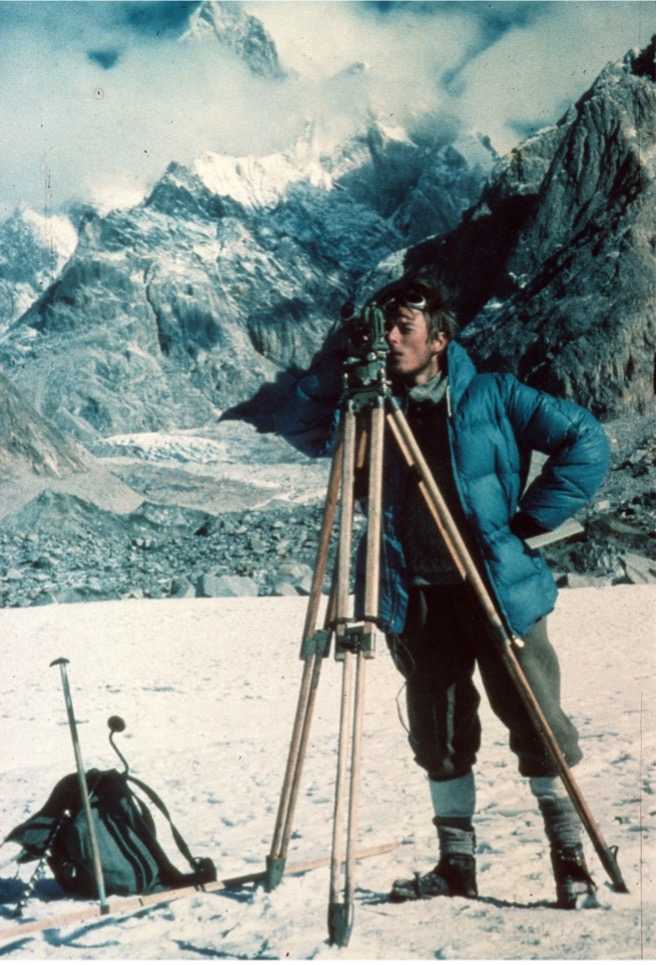From the time Ken joined Laurier he was principal investigator of the Snow and Ice Hydrology Project, a large multi-university research project examining water resources of the upper Indus River basin. Ken’s work involves understanding the interaction between large landslide events and the glaciology and hydrology of these high mountain systems and how these large-scale events play a large role in day-to-day life of high mountain villages along the tributaries and main stem of the Indus River.
Aside from holistic studies of this high mountain environment, examining both the physical and human dimension, he has been well-funded and recognized for his studies in risk and disaster theory; Ken is a quintessential geographer. He has published widely in journals including both Nature and Science and several articles/books focusing on social geography and human ecology of vulnerability and response to catastrophic risks as noted in the Karakoram, as well as how bombing during the second world war impacted civilian populations.
In 1987, he was a founding member of Laurier’s Cold Regions Research Centre. Throughout his career, Dr. Hewitt authored dozens of articles and chapters, and published multiple books, including Regions of Risk: A Geographical Introduction to Disasters. Dr. Hewitt received the Award for Scholarly Distinction in Geography granted by the Canadian Association of Geographers (CAG) in 1991.
In recognition of Dr. Ken Hewitt’s lifelong commitment to cold regions research and student success, as well as being a founding member of the CRRC, we have named the Student Training Support Fund in his honour. The Ken Hewitt Student Training Support Fund supports training and experiential learning activities which directly relate to student and postdoctoral research in cold regions.

Fund Details and Applications
WHO CAN APPLY?
The fund is available to Laurier-registered undergraduate, graduate, and post-doctoral researchers engaged in cold regions research and supervised or co-supervised by a CRRC Faculty member.
FUND AMOUNTS:
Up to $500 for eligible expenses. Funds will be awarded as available budget permits.
ELIGIBLE EXPENSES:
- Training – online or in-person courses to improve skills and knowledge related to cold regions research;
- Experiential learning and skill development – participation in a research-related program that does not produce research outputs for the student or their supervisor, normally organized by a recognized scientific organization or agency (e.g. NASA);
- Travel – training-related travel.
APPLICATION:
Students are strongly encouraged to apply in advance of incurring expenses, though retroactive applications may be considered under some circumstances.
ADJUDICATION:
Applications will be adjudicated on a rolling basis. Students will receive a decision on their applications usually within two weeks.
ANNUAL DATES FOR ELIGIBLE CLAIMS:
The eligible expense period follows Laurier’s fiscal year: May 1 – April 30. Reports for expenses incurred in April must be submitted by April 29.
EXPENSE CLAIMS:
Students whose applications have been successful must submit all receipts and evidence of any travel (e.g. boarding passes), along with a travel expense claim form, if applicable. Normally, this must be completed within one month of completing the training activity.
APPLY NOW:
The call is closed now.
